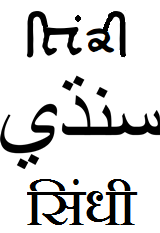Difference between revisions of "Language/Sindhi/Grammar/Imperatives"
m (Quick edit) |
m (Quick edit) |
||
| Line 79: | Line 79: | ||
<span gpt></span> <span model=gpt-3.5-turbo></span> <span temperature=1></span> | <span gpt></span> <span model=gpt-3.5-turbo></span> <span temperature=1></span> | ||
==Other Lessons== | |||
* [[Language/Sindhi/Grammar/Adjectives-and-Adverbs|Adjectives and Adverbs]] | |||
* [[Language/Sindhi/Grammar/Basic-Consonants-and-Vowels|Basic Consonants and Vowels]] | |||
* [[Language/Sindhi/Grammar/How-to-Use-Be|How to Use Be]] | |||
* [[Language/Sindhi/Grammar/Adjectives|Adjectives]] | |||
* [[Language/Sindhi/Grammar/Future-Tense|Future Tense]] | |||
* [[Language/Sindhi/Grammar/Verbs-and-Tenses|Verbs and Tenses]] | |||
* [[Language/Sindhi/Grammar/Sindhi-Alphabet|Sindhi Alphabet]] | |||
* [[Language/Sindhi/Grammar/Conditional-Sentences|Conditional Sentences]] | |||
* [[Language/Sindhi/Grammar/Expressing-Possession|Expressing Possession]] | |||
* [[Language/Sindhi/Grammar/How-to-Use-Have|How to Use Have]] | |||
{{Sindhi-Page-Bottom}} | {{Sindhi-Page-Bottom}} | ||
Revision as of 21:28, 2 April 2023
Introduction
In this lesson, you will learn about imperative sentences in Sindhi. Imperatives are used to give commands or make requests in a direct and polite manner. You will also learn how to form negative imperatives and use them appropriately in different situations.
Forming Imperatives
Imperatives in Sindhi are formed using the base form of the verb. The subject pronoun is usually omitted because the verb form itself indicates the subject of the sentence. Here are some examples:
Affirmative Imperatives
| Sindhi | Pronunciation | English Translation |
|---|---|---|
| بيٽو | bēṭō | Sit down |
| ڪاٺو | kāṭō | Cut |
| پڙهائيندڙ ڪجو! | paṛhāindṛu kajō! | Study now! |
| جوڙائيندڙ اٺو! | jōṛhāindṛu aṭō! | Join now! |
Negative Imperatives
Negative imperatives in Sindhi are formed by adding the word "نا" (nā) before the base form of the verb. Here are some examples:
| Sindhi | Pronunciation | English Translation |
|---|---|---|
| ناشيٽيو | nāśiṭiyō | Don't sit |
| ناڪاٺو | nākāṭō | Don't cut |
| ناتويندڙ دپن لڳائو! | nātōindṛu dapun laṭāō! | Don't put the book there! |
| ناجوڙائيندڙ ڊاڪٽر ٻيو! | nājōṛhāindṛu ḍākṭar bhiyō! | Don't call the doctor! |
Using Imperatives in Different Settings
Imperatives in Sindhi can be used in a variety of settings for different purposes. Here are some examples:
Giving Orders
Imperatives can be used to give orders in a direct and clear manner. This is commonly used in the workplace or in situations where order and efficiency are important. Here are some examples:
- بابو، فائل پئي وگهاريين || bābū, fāil paiyi wagahārīīn || Babu, file take to the office
- أناڑهيءَ، ڏڪ ڏانھن ڏڻائي دي || anaṛhi'a, ḍak ḍanhin ḍaṇāi dē || Careful, post the letter correctly
Making Requests
Imperatives can also be used to make requests in a polite and direct manner. This is commonly used in casual conversations or between friends and family members. Here are some examples:
- ڊڪٽر صاحب، مهرباني ڪري ڏڪاري ٿيندين || ḍākṭar sāhab, mehrbānī kari ḍakārī ṭhīndin || Doctor, would you please check the temperature?
- بچين، تون ڪرڻ شروع ٿو || bachīn, tōn karnu shuru'u ṭhō || Child, start your work.
Expressing Advice
Imperatives can also be used to express advice or suggestion in a direct manner. This is commonly used between acquaintances or colleagues. Here are some examples:
- پاڻي جي شپ شروع ڪري邪ڻ || pāṇī ji chap shuru'i karyan || Start your swim
- ٺولي جو لڳو || ṭhōlī jō laṭu || Wear a hat
Conclusion
In this lesson, you have learned how to form imperative sentences in Sindhi for giving commands and making polite requests. You also learned how to form negative imperatives and use them appropriately in different situations. Please take the time to practice forming different varieties of imperative sentences to become more comfortable and competent with this grammar concept.
Other Lessons
- Adjectives and Adverbs
- Basic Consonants and Vowels
- How to Use Be
- Adjectives
- Future Tense
- Verbs and Tenses
- Sindhi Alphabet
- Conditional Sentences
- Expressing Possession
- How to Use Have
